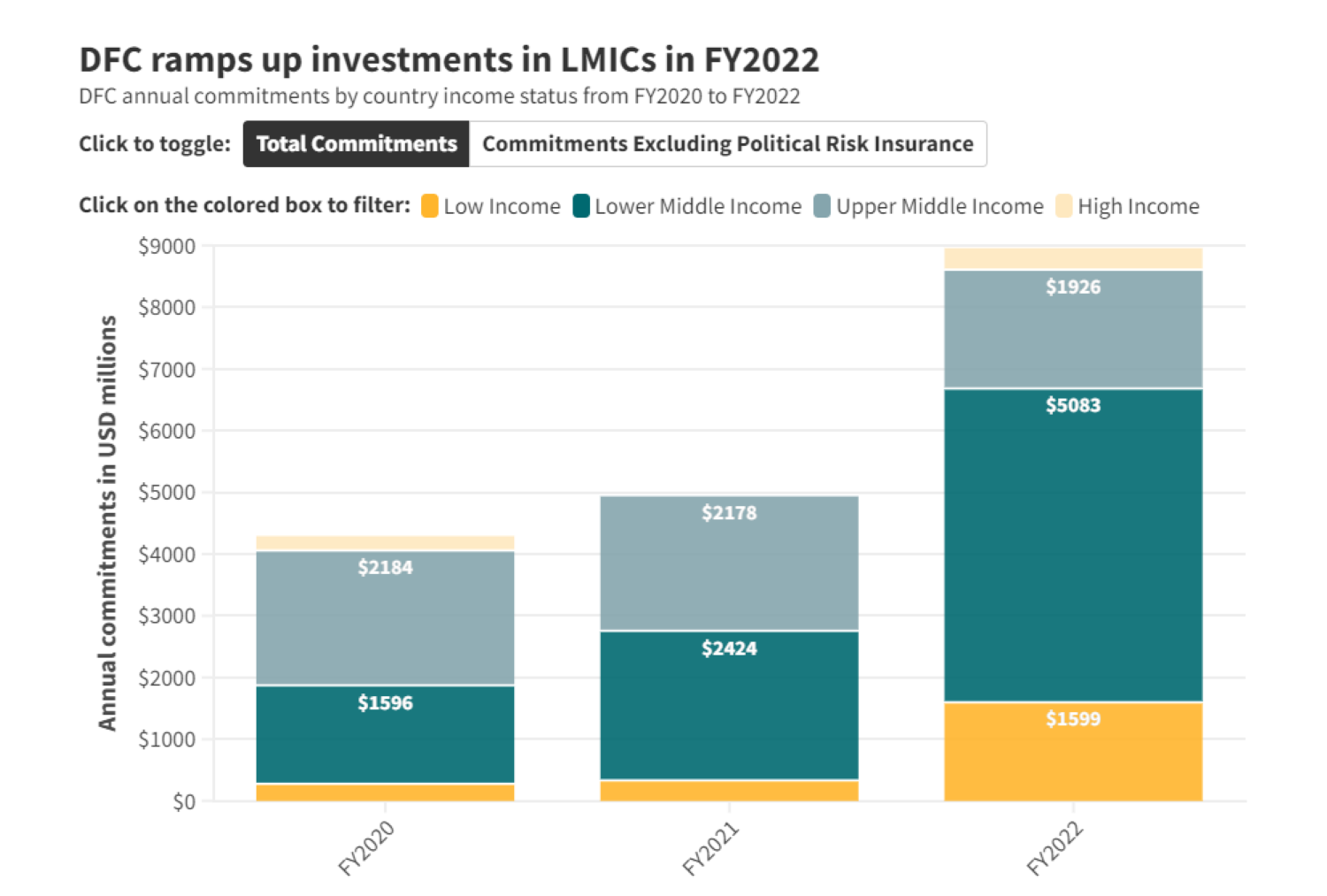For those who have read CGD’s work over the years, you’ll know that I’m a big fan of the Overseas Private Investment Corporation (OPIC). What’s not to like about an efficient, can-do organization that mobilizes private capital for development gain, and at zero cost to taxpayers?
Well, I do have one small bone to pick. OPIC could be much more open in reporting on its results. Granted, it already does a number of things well. Like posting descriptions of all of its approved and pending transactions on its website. And publishing an annual policy report, which includes a lot of helpful information. Such as data on how its portfolio has impacted host countries (e.g., job creation, local procurement, corporate taxes) and whether project sponsors have complied with OPIC’s environmental and social safeguards.
The problem is that the results data are all aggregated. That’s fine if you only want to know about job creation in Latin America or local procurement in Africa. But you’re out of luck if you want to know about job creation in the Latin American agro-processing sector, the African power sector, or in specific countries. Many of us are interested in taking a deeper dive into OPIC’s impact. Perhaps even identifying ways that it could deliver even stronger results. For all we know, OPIC construction sector investments have been amazingly successful at creating jobs, improving livelihoods, and broadening countries’ tax bases. Or, maybe its track record is weaker in certain sectors, regions, or countries.
Due to the commercial nature of OPIC’s activities, some project information simply cannot be released publicly. That’s perfectly reasonable. But, there’s gotta be a way to do more.
Well, that may be coming soon. Buried inside the Electrify Africa Act is a provision that would require OPIC to publish the “measurable development impacts” of its investments. It’s unclear whether this will apply only to African power projects or to OPIC’s entire portfolio. Of course, I hope that it’s the latter. If that’s the case, then the trick will be to develop an efficient, cost-effective way of meeting this requirement. After all, this would be an unfunded mandate for an already over-stretched OPIC policy team.
Within these practical constraints, here’s my wish: OPIC should develop a user-friendly tool that can run project-level queries by region, sector, and country. Click on a few boxes, and out comes the exportable data. But, I’d also settle for just raw data in whatever format they’re willing to provide.
At the end of the day, OPIC should welcome all of this attention, both from Congress and the research community. It illustrates a rapidly growing appreciation that this small and nimble agency is making an outsized contribution to US development objectives. This higher profile also means that more people are naturally asking for more details about OPIC’s impact on the ground.
CGD blog posts reflect the views of the authors, drawing on prior research and experience in their areas of expertise.
CGD is a nonpartisan, independent organization and does not take institutional positions.





